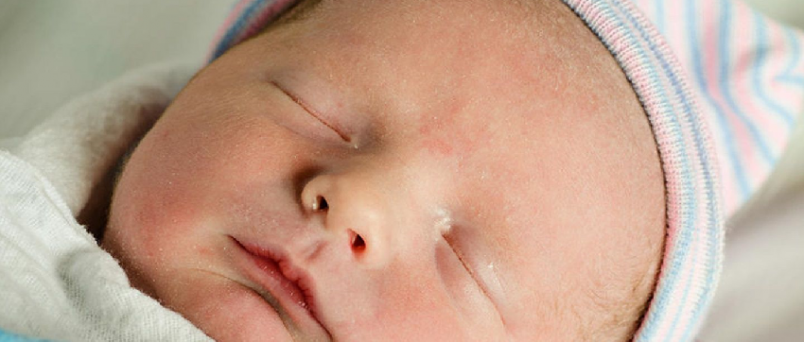When a newborn arrives home, and more so if it is the first, we can feel a number of emotions such as absolute happiness, indescribable love, and tenderness like we could never have felt, however, we are also given a number of unanswered questions, fears, and insecurities that can make us feel powerless in certain situations.
As has always been said, babies should arrive with an instruction manual!
However, this is not the case, and it is only when we are faced with a real situation that we wish we had had a little more information before all this happened.
To have a little more clarity and information about what can happen or what I have to do with that baby who comes home, we can have a prenatal consultation with the pediatrician, and thus clarify concepts, and doubts and banish myths about breastfeeding. , the care of the newborn, the controls that I must carry out, among other things.
Here we are going to mention some points to take into account with our newborn, general care, and some keys to successful breastfeeding!
Feeding

Exclusive Breastfeeding (EBL) is recommended
The feeding of all newborns should be breast milk exclusively and on demand according to the WHO recommendation. We must bear in mind that during the first few days breast milk is found in little quantities (Colostrum) but it is the richest in antibodies, which is why it will protect your baby from many respiratory and gastrointestinal infections.
We must be very careful, especially during the first days, that the baby feeds frequently on demand, this means that you can put him to the breast as many times as he asks for it, remember that the baby’s sucking is the greatest stimulus for the production of breast milk, accompanied by very good hydration of the mother, and adequate rest.
One of the signs that your baby is drinking enough breast milk is a sufficient amount of urine in the diapers, approximately 6-8 micturitions a day, and passing stools, which, the first few days, will be dark in color and very pasty (meconium ) and later turn semi-liquid, mustard yellow with white lumps, generally several times a day, after each feeding of breast milk.
We must also make sure that her skin does not turn bright yellow (jaundice) and that she does not lose more than 10% of her birth weight. If we take all these aspects into account, it is very certain that Exclusive Breastfeeding can be SUCCESSFULLY established.
Vaccination And Screening
All newborns must receive their first vaccinations: BCG and hepatitis B before discharge from the clinic and receive their vaccination card, as well as the results of blood group and serology tests. The TSH result to detect congenital hypothyroidism must be claimed after approximately 10 days.
Assessment By Pediatrics
All newborns should be evaluated before discharge from the clinic, preferably by a pediatrician, or alternatively by a general practitioner.
Umbilical Cords
It is recommended to keep it dry, clean, and uncovered.
General Bathroom
1 daily bath of short duration is recommended, using special hypoallergenic products for the skin of newborns. The use of lotions and/or perfumes is not recommended as these can irritate the baby’s skin. A special moisturizing cream recommended by the pediatrician may be used to hydrate the skin.
Safe Sleep Guidelines
The current recommendation is that the baby should always sleep on his back, without pillows, stuffed animals, or blankets that could cover the baby’s face, use a firm mattress and tight bedding, and keep the baby’s room well ventilated and at a suitable temperature, and no one should smoke inside the house.
Gas And Push
All newborns make a lot of noises when sleeping or during feeding, and the vast majority can present with what is known as functional digestive disorders, which include mild regurgitation, hiccups, gas, mild abdominal distention, change in the texture and frequency of stools, etc. ., all this due to the immaturity that newborns still have in their digestive system. All these symptoms are less noticeable if the baby is exclusively breastfed. You can consult your pediatrician if it causes significant discomfort, who could recommend some probiotics for your treatment.
Frequently Crying
You must take into account the change of habitat that your baby has presented. It comes from an optimal environment, inside your womb it never lacked for anything, and it passes into an environment where cold or heat, light, noise, or hunger can make you feel uncomfortable, added to which the only way to communicate is through crying, you must be calm, check that everything is fine and give him all the love and protection he needs without thinking that carrying him every time he cries will make him get used to it, because this is not true, on the contrary, if at this moment you give him all the support that the baby needs, he will soon be a very safe and calm baby.
Control Consultation A Week
It is very important to have it checked by your pediatrician 5-7 days after birth to assess the success of feeding, hydration status, recovery of birth weight, presence of jaundice, and, above all, to clarify any doubts that you will inevitably have. parents once take care of their baby at home.
If we take into account all these recommendations, we can be a little more sure that we are going to do it right, however, I cannot stop telling your mom or dad that the parents’ sixth sense is born when our first baby is born, whenever you have a concern and it generates some anxiety, do not hesitate to consult it.
The arrival of a baby at home, more than anxiety and fear, should fill us with a lot of happiness, do not let those fears rob you of the most beautiful thing that life can give you: the beautiful mission of being parents!
You may also be interested in Simple tips to take care of your health everyday

